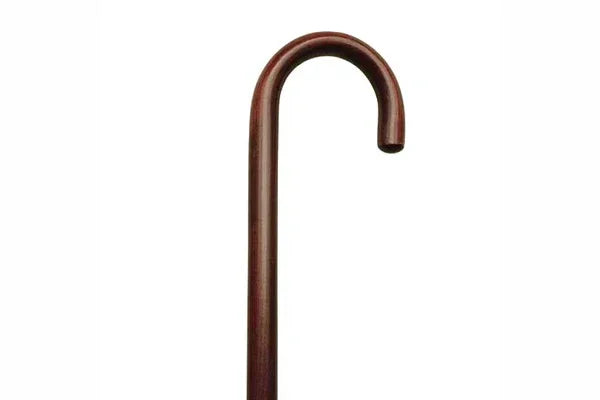The selection of a cane often extends beyond mere functionality, encompassing aesthetic preferences, durability considerations and personal style. While aluminum canes have gained popularity for their lightweight properties, mahogany, a time-honored hardwood, continues to captivate those seeking a blend of elegance, strength and longevity. This comparative analysis delves into the key attributes of these materials, providing insights to inform an informed decision.
Mahogany: A Timeless Classic
Renowned for its rich, warm tones and exceptional strength, mahogany has been a favored material for centuries. Its utilization in crafting furniture, musical instruments and for solid wood walking canes is a testament to its versatility and enduring appeal.
- Aesthetic Appeal: Mahogany's natural beauty, characterized by intricate grain patterns and a deep reddish-brown hue, exudes a sense of sophistication and refinement. Its timeless elegance complements a wide range of personal styles.
- Durability and Longevity: Mahogany is exceptionally resistant to damage, ensuring a cane's longevity with proper care. Unlike aluminum, which is susceptible to denting or bending, mahogany maintains its structural integrity over time.
- Craftsmanship: Mahogany wooden walking canes are often crafted with greater attention to detail, reflecting the artisan's skill and attention to detail. The intricate craftsmanship can elevate the cane beyond a functional item to a sophisticated functional piece.
- Weight and Balance: While heavier than aluminum, a mahogany wood cane offers a balanced weight distribution, providing stability and ease of use.
- Environmental Considerations: Mahogany, when sourced responsibly, is an environmentally friendly option. Sustainable forestry practices contribute to ecological preservation.
Aluminum: Lightweight and Modern
Aluminum canes have gained popularity due to their lightweight nature, making them a practical choice for individuals seeking portability.
- Weight: Aluminum's lightweight properties are its primary advantage, reducing physical strain during use.
- Durability: While lightweight, aluminum canes are susceptible to dents and scratches when compared to a hardwood cane, impacting their overall appearance and longevity.
- Cost: Generally, aluminum canes are more affordable than their mahogany counterparts.
- Maintenance: Aluminum canes typically require minimal maintenance, making them a low-maintenance option.
The choice between a mahogany solid wood cane and aluminum cane ultimately depends on individual priorities. Those seeking a cane that is a statement piece, prioritizing aesthetics, durability and craftsmanship, will likely find mahogany to be the superior option. Conversely, individuals primarily concerned with weight and affordability may lean towards aluminum.
It is essential to consider factors such as intended use, personal style, and budget when making a decision about wooden canes and walking sticks. A well-crafted mahogany cane from All Care Store can become a cherished heirloom, while an aluminum cane offers a practical and lightweight alternative.







